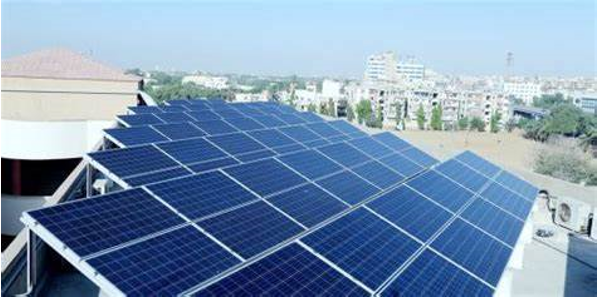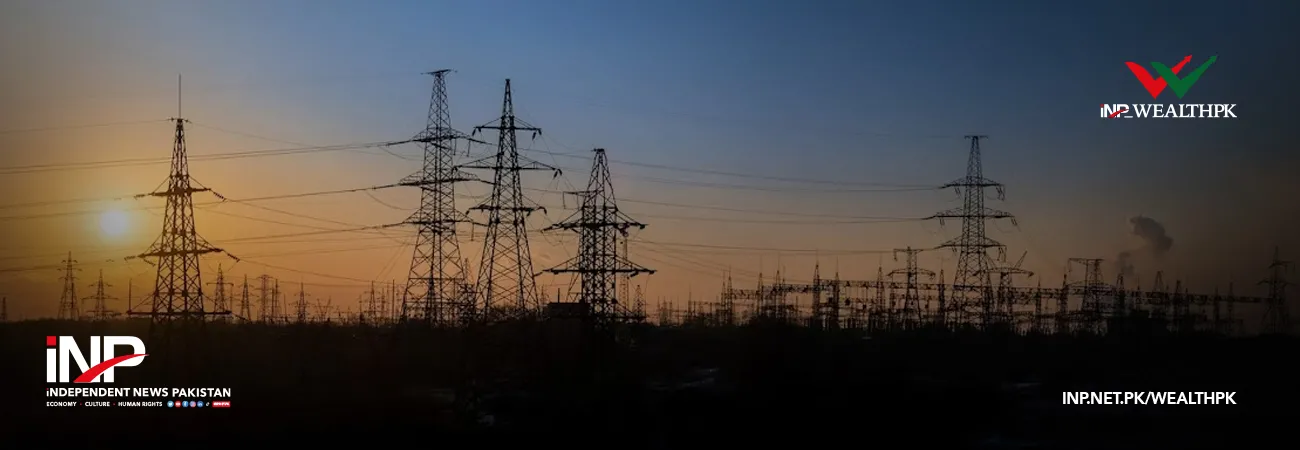INP-WealthPk
Amir Saeed
Pakistan is experiencing a significant shift towards solar energy, driven by high electricity tariffs and policy changes. This trend is leading consumers to opt for off-grid solutions, which could have profound implications for the country's energy landscape.

Talking to WealthPK, Owais Ahmad, an energy expert at LUMS Energy Institute, highlighted that the country’s growing base of over 280,000 solar-connected consumers reflects a broader shift toward self-generation as a response to skyrocketing grid electricity prices, which have rendered net metering a secondary benefit rather than the primary motivator.
He opined that the proposed transition to gross metering risks accelerating grid defection, as consumers may shift toward hybrid solar systems paired with battery storage to maximise energy independence. “With battery costs plummeting from $400/kWh to around $100/kWh, households and businesses can increasingly store daytime solar generation for night-time use, bypassing the need to sell excess energy to the grid at unfavourable rates.
This trend could undermine grid stability by reducing consumer reliance on centralised power systems,” he said. A more equitable solution, according to Ahmad, requires restructuring the tariff framework using a multi-part model. “Separating fixed charges (covering capacity payments and grid maintenance) from variable energy costs would align pricing with actual consumption.”
“For instance, a fixed charge of Rs18/kWh could address the Rs2.8 trillion capacity payment burden, while variable rates (Rs9/kWh) would charge users only for grid electricity consumed. This approach balances grid sustainability with fair pricing, preventing punitive measures against low-income users,” he explained.
“Rather than discouraging solar adoption through gross metering, which risks pushing consumers toward complete off-grid systems, a reformed tariff structure could integrate decentralised solar into the national grid while maintaining its financial viability. The path forward hinges on fostering collaboration between consumers and utilities, ensuring energy affordability without sacrificing long-term grid resilience,” the LUMS energy expert emphasised.
Talking to WealthPK, Dr Khalid Walid, an energy expert, cautioned that the decision to reduce incentives for net metering sends a negative signal to the market and is unlikely to achieve the government’s goal of increasing electricity demand and grid utilisation. “High electricity tariffs make rooftop solar economically advantageous even without buyback incentives. The government should consider how electricity pricing affects other sectors and develop a strategy to reduce rates by addressing cross-sectoral implications,” he suggested.
He highlighted that redirecting resources to subsidise vulnerable groups, such as low-income consumers, could reduce overall subsidies while making electricity more affordable. “Scrapping net metering incentives in isolation won’t resolve capacity traps or low consumption.” “Instead, rooftop solar could be used to shift energy burdens from residential to industrial consumers.
The lack of long-term planning has led to policies that solve one problem while creating others. Initially, net metering addressed accessibility, but now affordability is the main concern,” Walid noted. He suggested that instead of abrupt changes, the government should incentivise battery storage, promote energy efficiency, and electrify appliances to balance seasonal demand surges and increase grid consumption.
“High electricity prices are driving consumers toward off-grid solutions despite reduced buyback rates, highlighting the need for policies that encourage grid integration. A balanced approach with targeted subsidies and strategic planning is necessary to achieve long-term energy goals effectively,” the energy expert suggested.
Credit: INP-WealthPk












